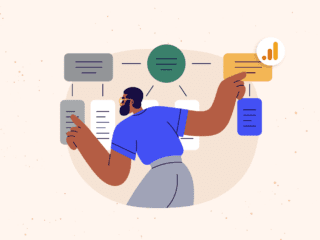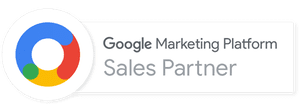Google’s Paul Muret, VP Display, Video & Analytics, was the keynote speaker at Google DoubleClick’s Leadership Summit this morning, an annual gathering of large advertiser, agency, and publisher clients. In his presentation, he shared updates about new innovations on the DoubleClick platform, and how these updates are helping advertisers and publishers adapt to today’s mobile world. He stated that for DoubleClick, this year’s focus is on how they can create better, faster ad experiences across every screen, starting with mobile. A brief overview of the history of DoubleClick showed us that this journey of disruption and programmatically serving up ads has skyrocketed. Using examples from technology companies such as those of the sharing economy (like Uber, AirBnB, TaskRabbit etc.), he outlined how ‘winning’ today is a result of an integrated user experience which delights its users. He goes on to emphasize how bringing measurement and analytics together with ad technology is the recipe for success in an environment that is fast paced and constantly evolving.
Muret states that driving performance of these organizations on the forefront means that they are creating user experiences that are immediate, integrated, and immersive.
Immediate
Consumer expectations of speed have skyrocketed, in a recent study, Google found that for every 400 milliseconds of delay in delivered search results, it resulted in a half point drop in search experience. That is the same amount of time that it takes to blink. When thinking about this in a mobile context, it is even more important. 77% of ad publishers have sites that take more than 10 seconds to load (the average is actually 19 seconds… not good!). The ad experience doesn’t stop there; the user then clicks through to a landing page. So, in essence what Google sees as a priority, is making this end-to-end path extremely fast. That is the first step.
Integrated
Second, the experience needs to be integrated. If it is not, it creates annoyance and ad blocking. This is when he introduces programmatic native ad buying. For the first time, advertisers will be able to buy native ads programmatically in DoubleClick Bid Manager, across all screens. These are ads that match the look, feel, and style of their surrounding content on a publisher’s website DoubleClick Bid Manager. This means that instead of providing fully-designed creatives, advertisers upload components of the ad – headline, image, text, etc. – and DoubleClick will automatically assemble them to fit the context and format of the site or app where they appear. With this, Google is also expanding support to include all app content, web content, and deals of all types. This powerful combination will result in full coverage to support the native shift.
Immersive
Third, Muret explained that the user experience needs to be immersive. Think virtual reality- he used an incredible example of a Hyundai ad where they serve users with a 360-degree view advertisement which showed a panoramic view of the inside of a new Hyundai vehicle. This example accompanied the announcement of out-stream video for integrated content, providing additional reach, tapping into TV budgets and driving yield. Making the user experience immersive means making sure it is at the leading edge of innovation: fast, integrated, and rich. This new feature will maximize yield while protecting the user experience, and dynamically optimize pricing and exchange bidding. By tapping into the predicative engine inside Google’s ad serving system, they are letting advertisers into the main console; essentially the place where all of the intelligence sits. Additionally, DoubleClick Bid Manager now integrates planning directly into the workflow. This means, audience list targeting for programmatic is guaranteed. By bringing advertisers and publishers together in this way, they’ve already seen a 3x growth in programmatic direct deals on DoubleClick. A great example of this is Netflix, they use audience list control to limit your ads to a specific audience list.
Google DoubleClick Partner Testimonial: Time Warner
After the announcement of the extensive product offering roll out from Paul Muret, Kristin O’Hara, CMO of Time Warner, took to the stage to reflect on why Google DoubleClick got their business. Time Warner has one of the most engaged and passionate fan bases, and their marketing goal is to exceed their consumer expectations when it comes to content delivery. They’ve established a global strategic partnership with Google DoubleClick because of these factors:
- Their media platform. Google is the largest video distribution platform, and they need their video advertising to be able to scale on and off the Google platform.
- Their technology. Time Warner wanted to partner and learn from the best. Double Click has the most sophisticated management, acquisition and retention of customers across the board.
- Their data. Recognizing that companies who have highly detailed view of their consumer intent will be the ones to succeed, led Time Warner to want to leverage this across all of their business units. Kristin went on to use an example within her organization of how they discovered that Game of Thrones and Batman audiences were highly similar in their actions, and used that to shape their programmatic buying. Knowing your audience and understanding your users was of utmost importance when selecting this solution.
Muret wraps up the session stating that looking ahead, DoubleClick’s goal remains the same: “work with advertiser and publisher partners, to offer digital ads that are lightning fast, engaging, and as beautiful as the site and app where they appear”.
Take a look at www.doubleclick.com next week for a series of articles with more details on yesterday’s summit product announcements. In case you missed it, you can watch the announcement here.

















